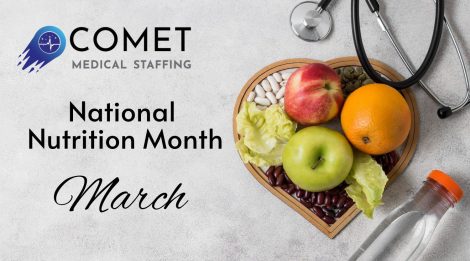Tips for a Balanced Diet and Healthy Eating Habits
Maintaining a balanced diet and healthy eating habits is essential for overall well-being. Here are some practical tips to help you achieve a nutritious and balanced diet:

- Incorporate a Variety of Foods
Eating a wide range of foods ensures you get all the necessary nutrients. Include fruits, vegetables, whole grains, lean proteins, and healthy fats in your daily meals. Each food group provides different essential nutrients that your body needs to function properly.
- Prioritize Fruits and Vegetables
Aim to fill half your plate with fruits and vegetables at each meal. These foods are rich in vitamins, minerals, and fiber, which are crucial for maintaining good health. Opt for a colorful variety to ensure a broad spectrum of nutrients.
- Choose Whole Grains
Whole grains like brown rice, quinoa, oats, and whole wheat bread are more nutritious than refined grains. They provide more fiber, which aids in digestion and helps you feel full longer, reducing the likelihood of overeating.
- Include Lean Proteins
Protein is vital for muscle repair and growth. Choose lean protein sources such as chicken, turkey, fish, beans, lentils, and tofu. These options are lower in saturated fat and can help maintain a healthy weight.
- Healthy Fats are Essential
Not all fats are bad. Healthy fats, such as those found in avocados, nuts, seeds, and olive oil, are important for brain health and energy. Limit saturated and trans fats found in fried foods and processed snacks.
- Stay Hydrated
Water is crucial for every bodily function. Aim to drink at least 8 glasses of water a day. Staying hydrated helps with digestion, nutrient absorption, and maintaining energy levels.
- Control Portion Sizes
Being mindful of portion sizes can prevent overeating. Use smaller plates, and pay attention to hunger and fullness cues. Eating slowly can help you recognize when you are satisfied.
- Limit Added Sugars and Salt
Excessive sugar and salt intake can lead to health issues like obesity, diabetes, and hypertension. Read food labels to monitor your intake and choose natural sweeteners like honey or fruits when possible.
- Plan Your Meals
Planning meals ahead of time can help you make healthier choices and avoid last-minute unhealthy options. Prepare a weekly menu and grocery list to ensure you have nutritious ingredients on hand.
- Practice Mindful Eating
Mindful eating involves paying full attention to the experience of eating and drinking. It helps you enjoy your food more and recognize your body’s hunger and fullness signals. Avoid distractions like TV or smartphones during meals.
By following these tips, you can develop healthy eating habits that contribute to a balanced diet and overall well-being. Remember, consistency is key, and small changes can lead to significant improvements in your health over time.
.
